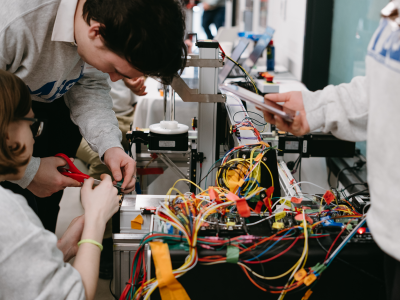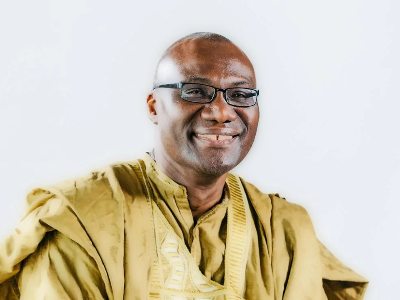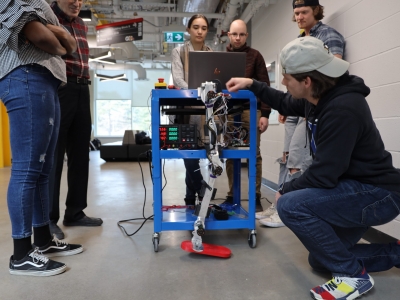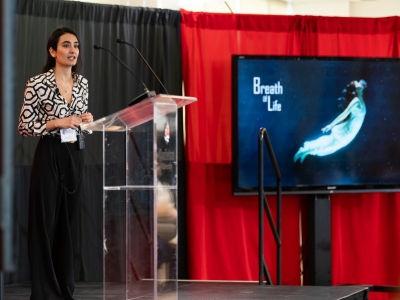As we mark the 20th anniversary of the first graduating class in Environmental Engineering at Carleton, we’re delighted to showcase one of its members, Su-Kim Roy (BEng/96), who is now a Project Manager of Environmental Engineering and Hydrogeology at Stantec Consulting Ltd.
We recently connected with Su-Kim to discuss her position with Stantec, her experiences at Carleton, the evolving role of environmental engineers, and how they can make a difference in our society.
Carleton University – How did you initially become interested in environmental engineering?
SR – With science and mathematics having been some of my strongest subjects in high school, I actually initially registered to study Environmental Science at Carleton. However, a few months before the start of classes I received a pamphlet from Carleton in the mail introducing a newly offered Environmental Engineering program. I was intrigued by the idea and practical nature of an applied science where I could study science and the environment and apply that knowledge to have a direct impact on the real world. The appeal was so great that I decided to switch programs before the start of the fall semester.
CU – What drew you to Carleton specifically?
SR – Several of my friends from high school were a year ahead of me and started their studies at Carleton while I was in my last year of high school. This inevitably led me to visit Carleton’s campus and learn about the various degree programs offered. Although I considered a few different universities within Ontario, Carleton really stood out for me in the way the institution offers high quality educational programs, but also maintains a very welcoming hometown community atmosphere.
CU – Tell us a bit about your role at Stantec.
SR – As an Environmental Engineer and Hydrogeologist at Stantec I see myself primarily as a troubleshooter. Whether I am managing a large scale multi-discipline project spanning many years and involving Stantec offices from across the country or a small simple local project which can be completed in a few days, the end goal is always to determine the best overall solution for our clients in the most effective and efficient way possible. The consulting industry can be fast paced and very competitive, so in order to thrive you need to develop skills which will set you apart from the competition. As a project manager, I frequently feel like I am the drummer in a band. I keep time in the background and support the rest of the group so they can perform to the best of their ability. In the end, the result is hopefully a hit!
CU – What do you find most gratifying about your current position?
SR – Working in a large consulting firm has afforded me many fulfilling opportunities. I think one of the most rewarding aspects of my current position is how I’ve been able to work on such a wide array of different projects in many geographical locations, across many different sectors and with personnel from various technical backgrounds across the country. The corporate culture at Stantec is very encouraging and supportive of personal and professional growth and the number of different projects staff can become involved in is vast. Being a part of teams working on such diverse projects has allowed me to learn from others in a very real and concrete way. I’ve also been able to mentor others as my experience has grown over time. This synergy is very positive.
CU – Tell us about your experiences being part of the first graduating class from Environmental Engineering?
SR – It was quite interesting being a graduate of a newly established program. When I first entered the workforce I met very few colleagues in Ottawa with a degree in Environmental Engineering, although many overlaps and commonalities existed among Environmental, Civil/Municipal and Chemical Engineering graduates. As I continued my career in the industry I started to cross paths with more and more Environmental Engineers through the course of my work. Having been part of when it all began, it’s always interesting to me to hear how the program has developed over time. For instance, when I recently attended a Career Fair at Carleton to represent my employer I was intrigued to learn that a new degree was being offered in the area of Sustainable and Renewable Energy. It was amazing to see how the program has evolved over time to meet the challenges, needs and requirements of society and our planet. It makes me feel very proud and also honoured to have been part of the first graduating class.
CU – How do you think environmental engineers contribute to the betterment of society?
SR – I think Environmental Engineers have a key role to play in improving our society from both a sustainability and quality of life standpoint, which are not mutually exclusive. Our planet has limited resources which are being increasingly stressed due to rising consumption in some geographical locations and a growing population on the planet overall. Environmental Engineers are able to take action in the reversal or mitigation of some of these negative effects. Management and clean-up of air, water, and solid waste is important to our society and allows our resource assets to be re-used. Alternative new and green technologies such as solar power, wind power, and green construction practices also reduce the strain on other existing and non-renewable resources. The field of Environmental Engineering is always evolving and that’s very exciting.
CU – Paul Van Geel and Deniz Karman were the first two professors hired to teach Environmental Engineering at Carleton. Do you have any specific memories of your time learning from them or any other professors you recall as being influential to your education?
SR – I remember the day our class met Dr. Karman when we took our first Environmental Engineering course. He was so excited to be there and so passionate about teaching! You could see it in the animated way he moved about the classroom, tossing a piece of chalk up in the air, back and forth from hand to hand, challenging us to think about problems in a new way. I think he wanted us to realize that we weren’t at university to learn about routine solutions to problems, but rather to learn how to solve problems with an engineering mindset. He was never easy on us, but he always had time to go over anything you didn’t understand in class or on an assignment. His office door was always open to anyone.
I remember the first day Dr. Van Geel taught our class as well. We were all sitting in the classroom waiting to start and a young man in a blue suit walked in. We all thought he was a student, or perhaps a mature student studying part time because he seemed too young to be a professor. It was quite a surprise when he continued walking up the aisle to the front of the class and introduced himself as the professor teaching the class! I know I am not alone in remembering Dr. Van Geel as a very dedicated teacher and mentor. In fact, as one of his graduate students, I know I probably tested his patience more than once when my research hit many bumps, but Dr. Van Geel’s enthusiasm for teaching and support has assisted in pulling many of his students through some tough times!
CU – What advice would you offer to new graduates as they enter the workforce?
SR – Engineering is such a flexible field of study because it is so diverse with many areas of specialization including project management, personnel management, policy development, and design or technical expertise. Whether you are first entering the workforce or have been in the industry for some time, being exposed to different areas and new ideas will allow you to continue to learn and grow in your career. Be bold and don’t be afraid to accept opportunities to work in different areas throughout your career. Learning doesn’t stop once you’ve graduated.



